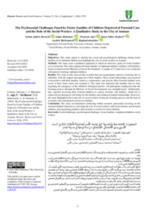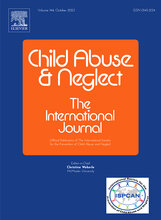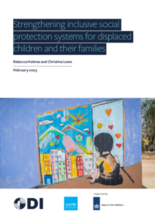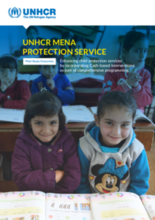childrens_living_arrangement
children_living_without_bio
Displaying 1 - 10 of 43
This study aimed to identify the social and psychological challenges facing foster families of orphaned children and highlight the role of social workers in Amman.
This Social Service Workforce Week, join the Global Social Service Workforce Alliance and the Better Care Network (BCN) for a webinar to explore progress, successes and challenges in global efforts to strengthen the social service workforce for family care and care system reform.
This study aimed to investigate the lived experiences of unaccompanied refugee children in Jordan and shed light on their unique challenges and needs.
Authored by the ODI in partnership with UNICEF, this paper assesses the benefits of inclusive social protection from a displacement and child-centred perspective.
In this webinar the speakers discussed the implementation experiences and emerging lessons of COVID-19 response strategies of seven programmes that prioritize nurturing care and early childhood development in their work.
In this webinar, panelists will discuss the implementation experiences and emerging lessons of COVID-19 response strategies of seven programmes that prioritize nurturing care and early childhood development in their work.
These Practitioner Guidance Papers share the approaches of five Family for Every Child members in adapting existing helplines or setting up new ones during the COVID-19 pandemic
UNICEF is seeking a consultant to coordinate and lead regional data initiatives to shape the narrative in advocacy and programming for children on the move in the Middle East and North Africa (MENA) region.
This qualitative study sought to understand the causes of separation among Syrian families in Jordan and the obstacles to family reunification.
This report presents the results of multi-country research launched in 2018 on refugee data in Egypt, Jordan and Lebanon to study the impact of cash-based interventions (CBI) on child protection outcomes.




